
Recently on Cyclingnews.com |
An interview with Robert Förster, June 21, 2006
Förster cracks the big one
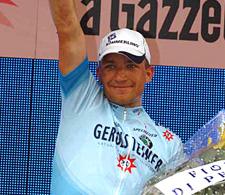
|
Robert Förster became Gerolsteiner's number one sprinter when Olaf Pollack left to join rival German Team T-Mobile. The only problem was that he had more second and third places than wins. So his goal for 2006 was to "pull off a big one" - and that's exactly what he did, winning the final stage of the Giro d'Italia. Unfortunately for him,he won't be able to win on the Champs Elysees this year, as Gerolsteiner has decided against including sprinters in their Tour team. Cyclingnews' Susan Westemeyer caught up with "Frösi" to find out how he is dealing with the ups and downs of life as a sprinter.
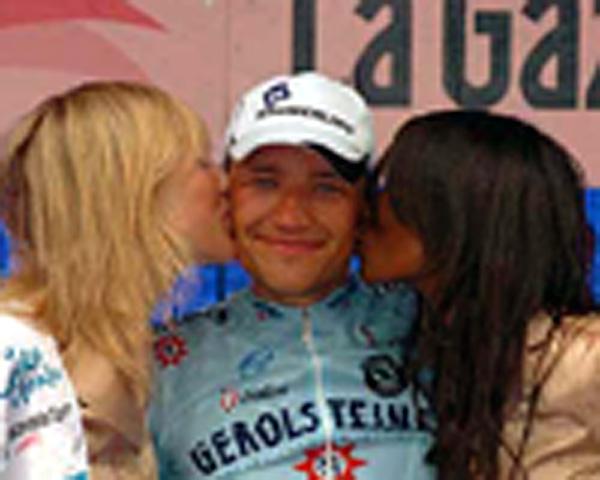
|
Cyclingnews: After you won the last stage of the Giro d'Italia, you said that you couldn't believe it. Have you been able to absorb it by now and what does it mean to you?
Robert Förster: It's slowly beginning to sink in - that was the biggest win of my career to date. Looking at it from a purely athletic point of view, winning a sprint at the end of a three-week Tour is something very special. I forced myself to make it through to Milan; some of the other sprinters had already gone home. It was a really super experience and I'm very proud of that win.
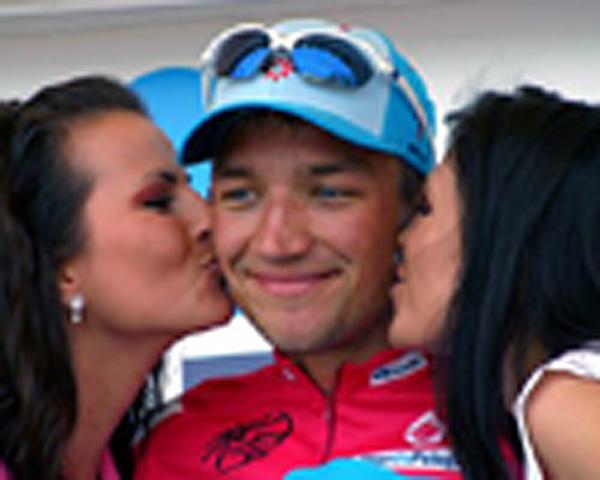
|
CN: How did the Giro go for you otherwise? Were you satisfied with your performance before the last stage?
"You have to be pretty thick-skinned in order to survive such a dry spell. A healthy self-confidence is very important!"-Förster explains how he was able to survive until his drought-breaking win in the Giro. |
RF: Well, I had to work pretty hard especially after what was a very frustrating start. I just wasn't able to get into the swing of things and I didn't play a role in any of the early sprints. I suffered many injuries before the Giro and they really had a negative effect on my form.
CN: Is victory on the Champs Elysees your next goal?
RF: No. I won't have a chance to ride the Tour until 2007. After seeing how the team did in the Dauphine Libere, the
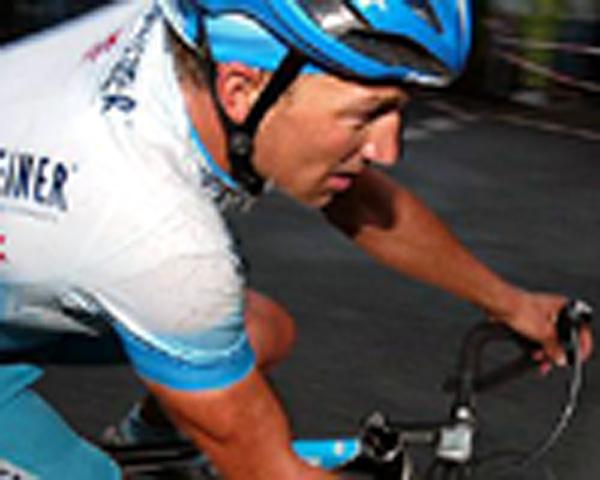
|
management decided to take climbers to the Tour instead of sprinters.
CN: You said that you wanted to "pull off a big one" as your 2006 season goal. Do you think that the Giro stage win was "the big one" or can we expect more?
RF: One success just makes you want more. But that was a pretty special win in Milan...
CN: The Giro stage win was your first big success after six years as a pro. Were you beginning to doubt that you would ever pull off a big win, or did you always believe that a big success was just around the corner?
RF: No. If I had doubted myself, then it would have been a lot harder. You have to be pretty thick-skinned in order to
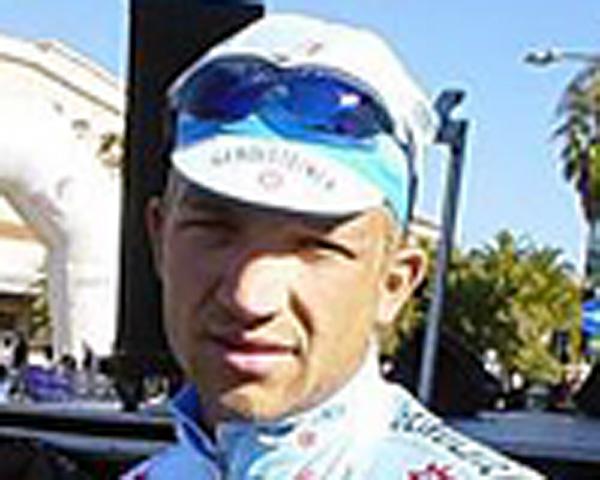
|
survive such a dry spell. A healthy self-confidence is very important!
CN: How do you get along with the other sprinters on your team, like Rene Haselbacher for example? Do you see them as rivals or as teammates? How is your relationship with other team's sprinters, such as Zabel, Boonen and McEwen?
RF: We all get along with each other quite well within the team. That includes the sprinters and the all-rounders. Obviously, in a 25-man team there will be people with whom you have more contact and those with whom you have less contact - just like in everyday life. My relationship with the other "fast guys" would be what I call "business" or "professional". During a race you might fight against each during a sprint, but later you suffer together in the gruppetto.
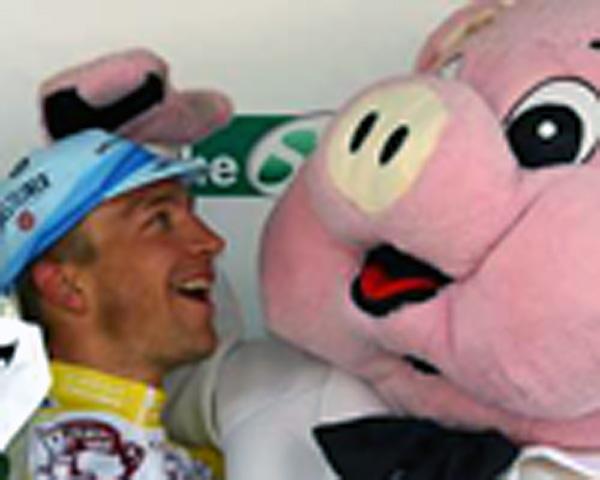
|
CN: How does the team decide who will be the leader? Is it decided before or during the race or stage? Can you object to the team's decision?
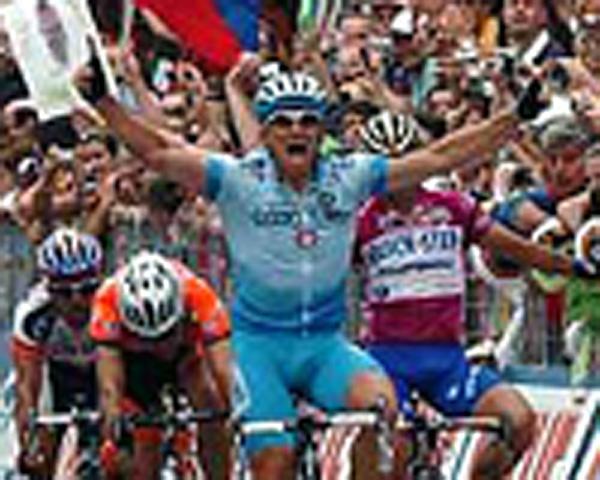
|
RF: It varies from race-to-race; there are always developments during a race that can cause a change in plan. Of course, I let my opinion be known if I don't agree - we're not little kids and we can discuss things. Of course, if I don't feel well in the finale or if my legs get better during a stage, then you have to let the others know as soon as possible.
CN: Before the season, you said that the coordination with your lead-out men could be improved and that communication sometimes broke down. Has that improved? How do you train or practice to improve that?
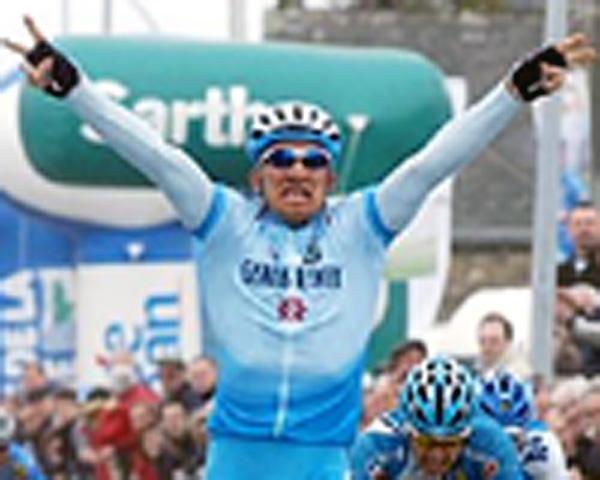
|
RF: I think that I said that our team's communication is still not automatic and you can only achieve that by practice, practice and more practice - in races. A good example of successful communication with my teammates was before my win in Milan. Sven Rauss responded "automatically" by immediately going after Ongarato when he attacked shortly before the finish. But of course there's always room for improvement.
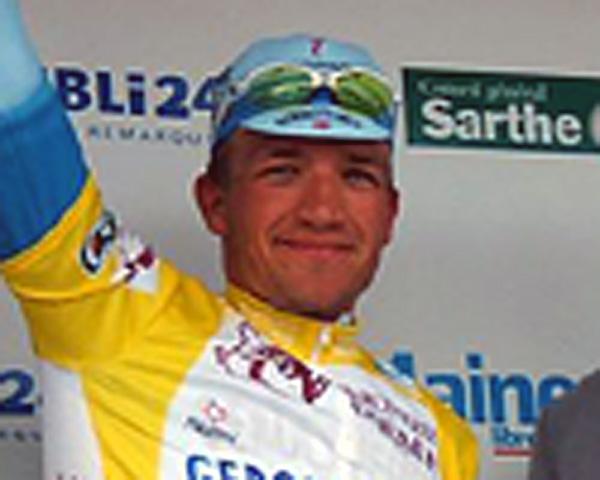
|
CN: What is on your race calendar for the rest of the year? The national championships and then what?
RF: The course for the nationals doesn't seem to suit the sprinters this year. I'd like to ride the Deutschland Tour and/or the Vuelta, which would give me more chance of success.
